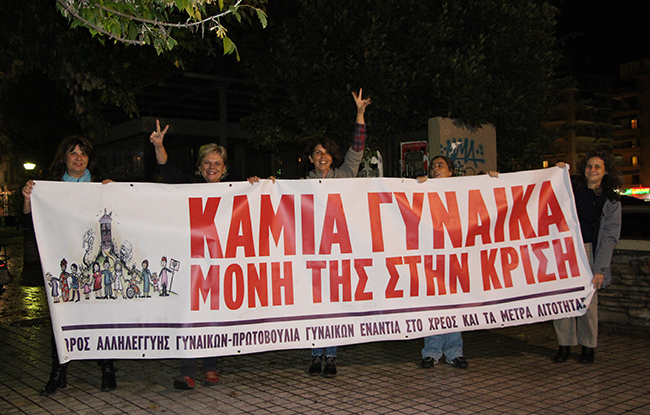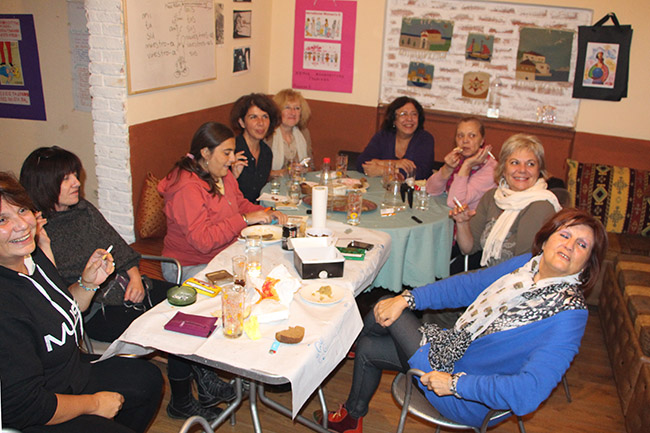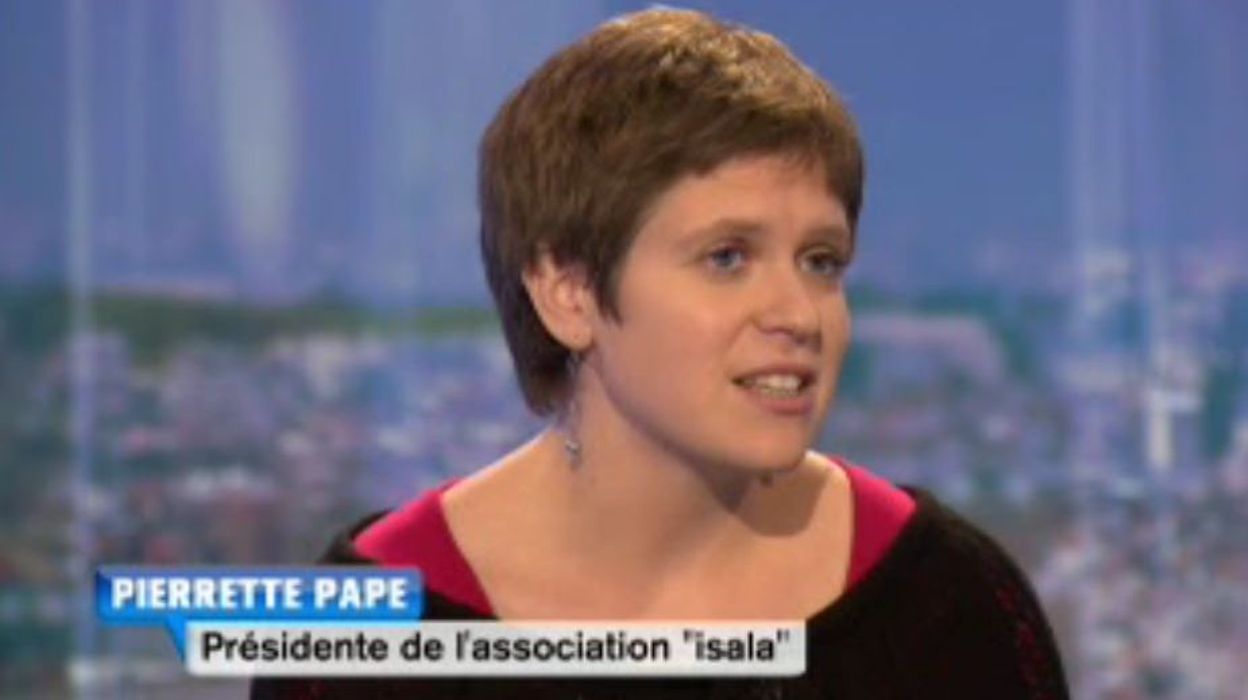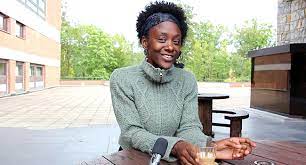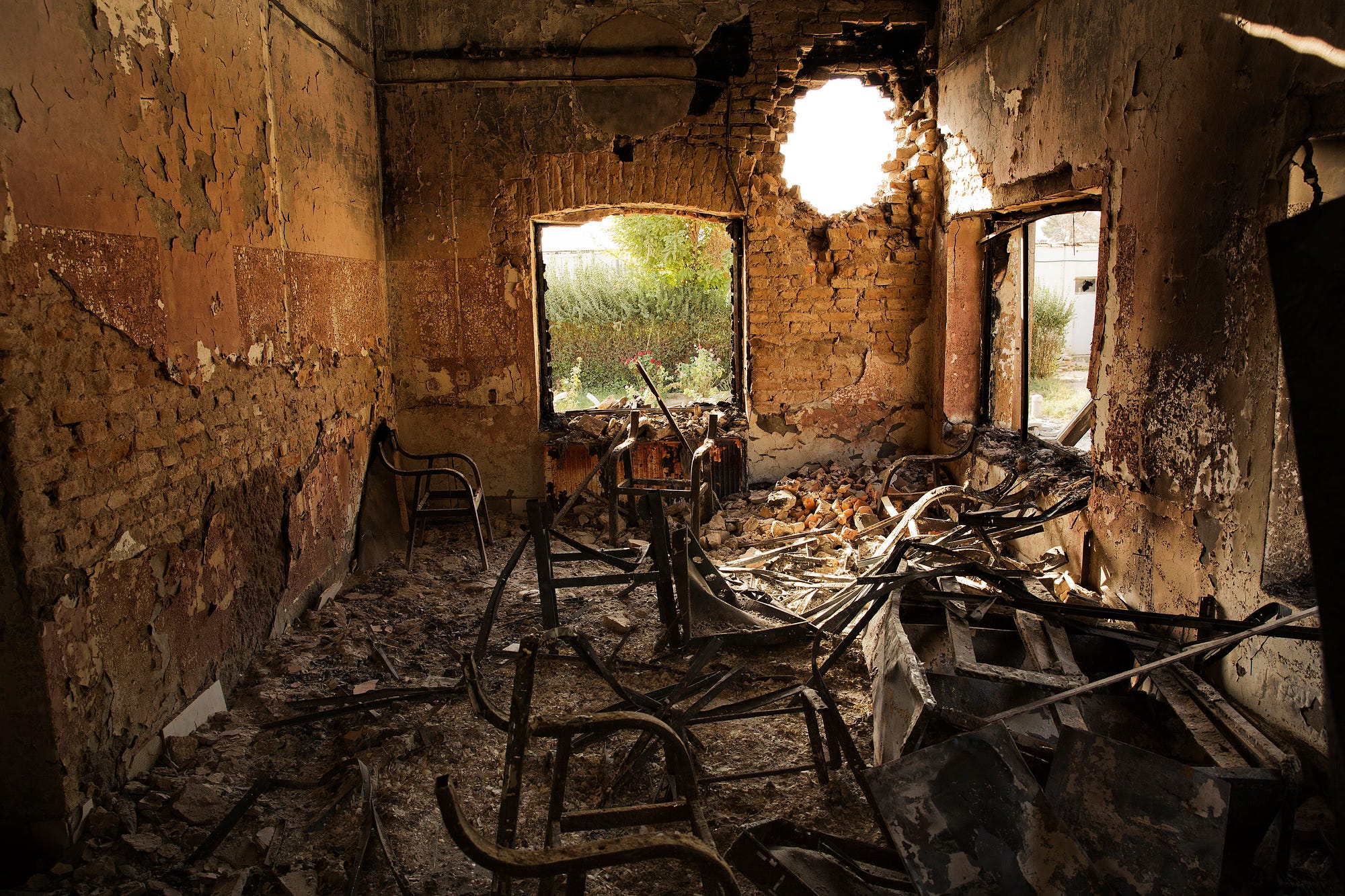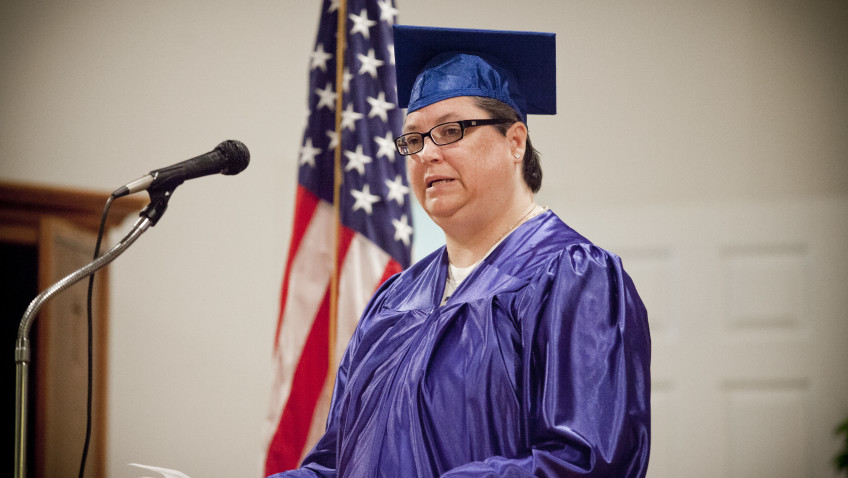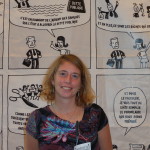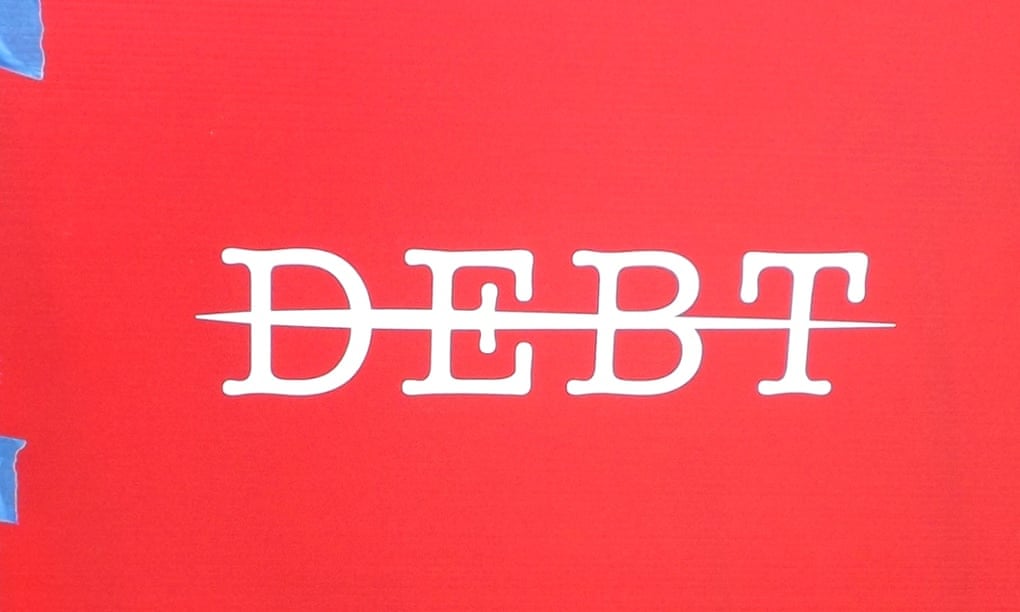
The following conversation took place right after we received news of the Paris attacks. We were in Milwaukee at the National Women’s Studies Association conference, where we were presenting on a panel on the invisibility of mothers in the U.S. and in India, made more so by social policies, particularly pregnant women in U.S. prisons who are shackled during pregnancy and labor. When the horrific news reached us, taking time out of the conference to respond to each other was the only way we knew to attend to our emotions and thoughts.
B: Yesterday, the news came. Something happened in Paris, the city I know well and where many of my relatives and friends live. The first pop-up news stated, “40 killed.” What? And then there was an avalanche of dreadful messages from friends and family. Then began the task of looking for everyone there. Pramila, with whom I presented that afternoon in Milwaukee, was with me and I clung to her to stay afloat.
P: My heart was in my mouth when I heard of the attacks when we finished our panel on the invisibility of women. Over the next two hours, we got the news in dribs and drabs on CNN. My feeling of tragedy was overwhelming, especially because my friend Brigitte lives near Paris and visits there often, and it only happened she was currently in the U.S. and presenting at our panel. What were the chances that she and her family were not at that particular site of one of the attacks? What are the chances that any one of us is at the wrong place at the wrong time? But even as I think this way, I am already guilty of surviving. I am also witnessing another kind of suffering that is unfolding before my eyes—the sorrow of the witnesses.
B: Yes, the link to precarity struck me as well. My thoughts went to the family from Syria I met on the train to Thessaloniki. They left Syria to go on this very dangerous journey, crossed the Mediterranean Sea on a flimsy boat, scared. They were abandoned and ended up in the water, from where they were rescued. Yesterday in Paris, people stepped on pools of blood as they ran for their lives. It was difficult to locate friends and family certainly and my heart was pounding at times, but I felt that we had an urge for human connection, for solidarity. We wandered in the hotel and met our friend Sherry who hadn’t heard the news. We told her. Her first words were “Bush and his team opened a Pandora’s box!”
P: I, too, am thinking about how precarious our lives have become, even more so after the U.S. invasion of Iraq and Afghanistan. Daesh is no accident—it is the horrific outcome of a violent situation created by the invasion of Iraq under the false rhetoric of bringing freedom to the Iraqi people. The irony of this is not lost as we witness not simply the hardship brought about by the violence witnessed everyday by the Iraqis—a violence that was perpetuated by the U.S. presence and now by Daesh; the spreading of this violence into France that upholds liberty, equality, fraternity in its social policies and its political philosophy. So it is not surprising that President Hollande’s first word after the shock of the attacks last night was “Compassion.” Not revenge, not an eye-for-an-eye argument. Because the way out of the revenge equation is more liberty, compassion, empathy toward the marginalized—values that are anathema to fundamentalism everywhere. Because fundamentalism thrives on divisiveness, subjugation and fear.
B: The work of compassion was expressed by one of my interviewees in the documentary “What Do You Mean Shackled?” That is one of the values that we share and forget about so quickly when profit and money animate the elite and put us at risk of violence. Compassion and solidarity work together. Shackling pregnant women is simply horrific, as it was horrific to enslave people from another continent. But we continue to talk about “our values.” What and where are they? This morning, besides the probably necessary forceful responses, everybody in France is talking about the values of compassion and solidarity. How can we reinforce these values in actions instead of acting in opposition to them?
This morning in Paris, people were hugging and kissing each other. My friend there told me how they want to take care of each other, atheists, Muslims, Jews, Christians simply because they are human beings and nothing else.
P: I am recalling the terrorist attacks that happen in cities like Mumbai, the most recent being in 2008. Although the terrorists from Pakistan claimed responsibility, the Indian government followed the legal steps to achieve justice, instead of launching attacks on Pakistan, for it knew that violence only begets more violence. Remarkably, each time a riot happens, the plural citizenry of Mumbai stick with each other, offering support and solidarity. So it is only solidarity that can be the single most effective strategy against violence.
Words of sympathy from strangers…so simple, so natural.
This morning as we were having breakfast in the hotel, the waiter brought us the bill and on it he had written, “Our heartfelt sympathy for the French people.” This simple gesture brought tears to our eyes. Brigitte said, “We need to treasure these moments…such as the moment of solidarity I experienced with the Syrian refugees and the Greek women on the train to Thessaloniki.”
Solidarity and compassion are the only antidote to violence and hatred.
And one must go on. That sense of carrying on with our purpose is best expressed in W.H. Auden’s “Musée des Beaux Arts”. The opening line goes, “About suffering they were never wrong.” In the poem, Auden describes the fall of Icarus from the sky into the water; the ships and people keep going on despite the suffering of the fallen boy. One can read the poem as people turning away from the suffering person. They see what happens; they absorb it; and they continue with their task. I want to add a few lines to this poem, depicting the folks on the shore turning toward each other and extending a comforting hand, rather than remaining isolated. Being isolated when suffering unfolds around you diminishes the spirit. What is spectacularly humane is for people to turn toward each other to offer comfort.
B: I watched on French TV the reaction of people in the iconic Place de la République. Some targeted Muslim people to give them kisses and hugs and to tell them thank you. One man said that he was appalled by the distortion of his faith and asserted that he felt more like a citizen. Certainly, people are looking for a common humanity.
Some people and the French press examined how Daesh came to be.
In the name of which god did the U.S. invade a country, with oil in its soil, so far away a country named Iraq?
In the name of which god did they incarcerate so many in jails like Abu Ghraib and carry their violence with them?
They instilled the indistinguishable sense of injustice, detained the innocent with the angry. They tortured, pronouncing that it was fair to torture bodies from another place.
They believe in this competition for violence; competition–another word that negates solidarity and compassion, the basis of justice.
We are listening to countless stories of violence perpetrated in the name of which god? Stories of violence on farmers, women, and the ones who live and enjoy life in Paris.
This violence comes from nearby and far away–this is what deterritorialization of mode of production has produced. It comes from greed, from controlling faith, from competition. I think of your words about Mumbai as a place of laicity; I think of Paris as a place of laicity, a place for resistance maybe. I remember the French President saying no to war in 2001, no to the invasion of Iraq…Will he be remembered for saying the words of the people who never want war?
P: Yesterday I heard from a friend who said she was so disturbed by the Paris attacks that she wanted to reach out to her friends and embrace them. I was touched. In the same email, she said that only one religion is responsible for creating so much bloodshed. I want to tell those who are blaming the Muslim faith, we need to look at the set of circumstances that produced the current violence in Europe. We need to see the chain of events, beginning with the first Gulf War, then the attack on Iraq as retaliation for the 9/11 attacks, the massive breakdown of infrastructure in Iraq, its repercussions across the region, the vacuum of power that was filled with a government that was divided across sectarian lines, the daily carnage in Iraq, unemployment, loss of hope for young people facing a bleak future. The ousted government of Saddam Hussein became the Islamic State. Their establishment is not based on religion—it is based on an ideology of violence in order to build territory and acquire totalitarian power. William McCants, author of Isis Apocalypse, says the Islamic State’s territory is shrinking and they are losing much of their money in undertaking organized violence. At the same time, places that are unstable will become the breeding grounds for ISIS recruits and for the establishment of their government. So what can we do to counter this maddening expansion of Islamic State members in our midst?
B: Additionally, the South, where Iraq and Syria are, has been affected by climate change generated in the North. The discriminatory system of the current economic system is also at work. Maybe that is the biggest hidden issue in the invasion of Iraq, the destabilization of the region, and as a result, the building of Daesh with the role of war capability as a rationale. Deleuze and Guattari said fascism requires a war machine. Fascism formed in the Western countries and it imposed a world war on populations in the Pacific Ocean and in Africa and many other places. Maybe the greatest threat for humanity is our divisiveness. We should not lower our guard as many forces would like to use these events to threaten the social and civil cohesiveness that is more than ever needed.
Solidarity and compassion should be viewed as crucial components for organizing, if we want to counter the maddening expansion of the Islamic State power and the maddening often concealed violence of the neoliberal order. Both require resistance.
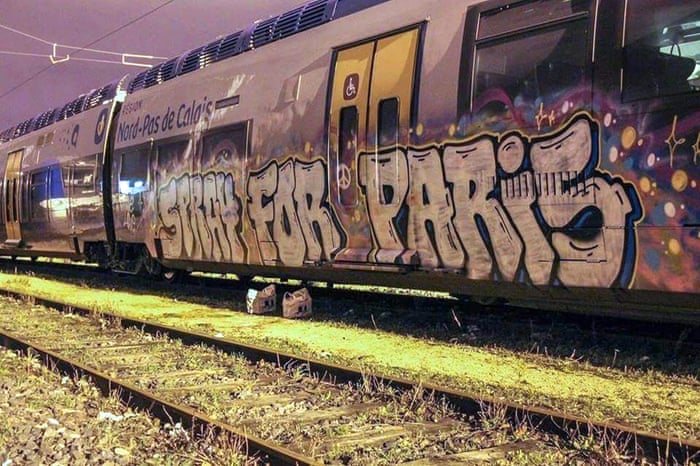
(Photo Credit 1: Oliver Hardcore / The Guardian)(Photo Credit 2: Enzo Dkndt / The Guardian
